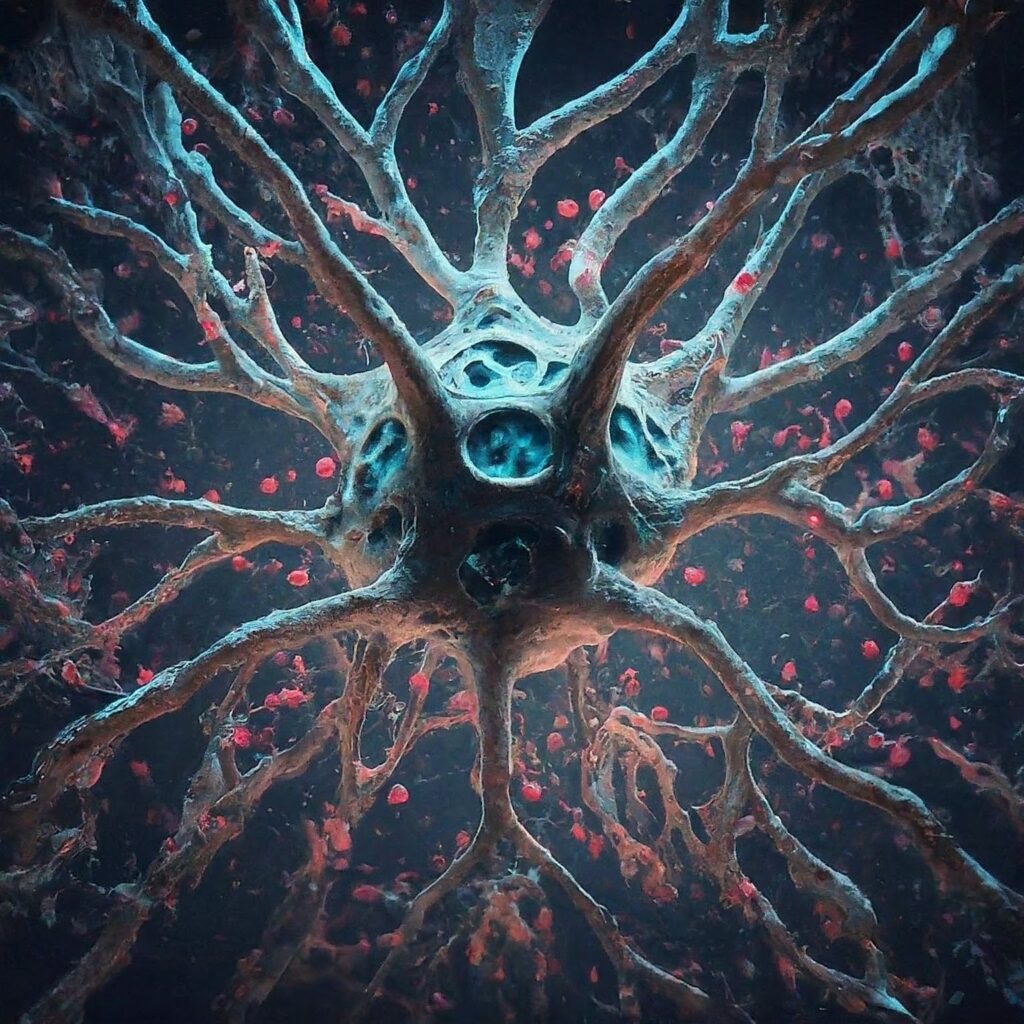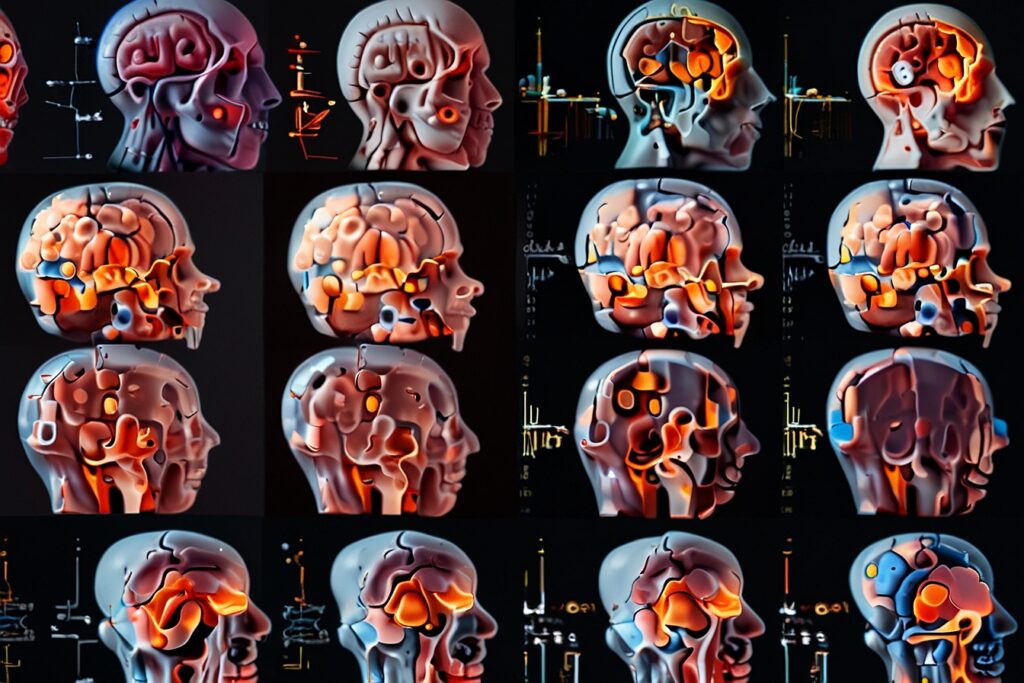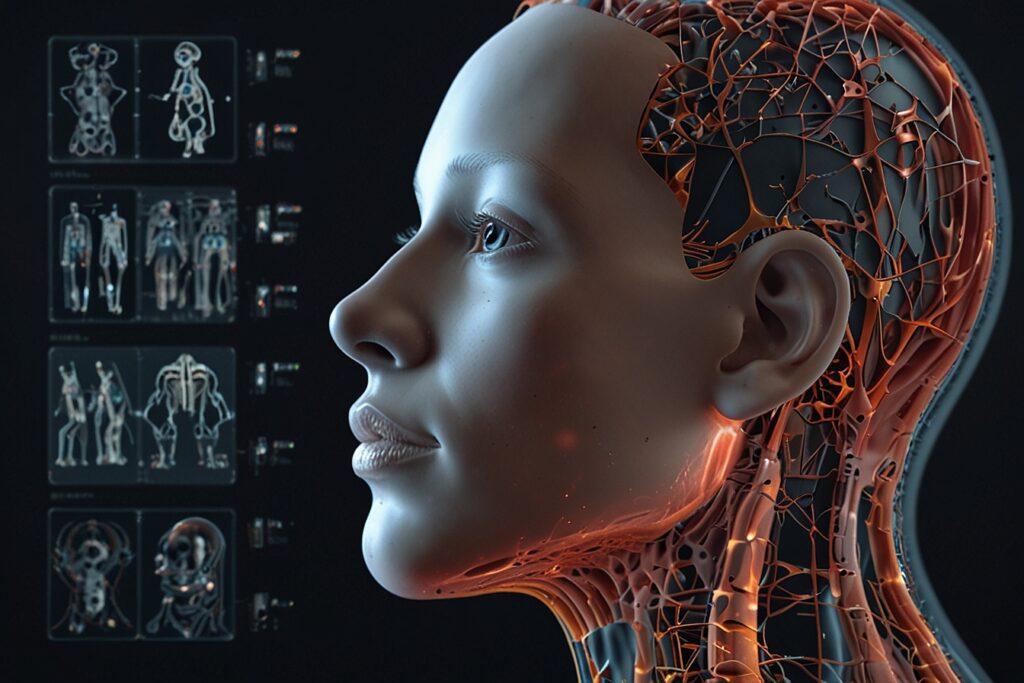The healthcare industry stands at the precipice of a transformative era. Generative AI, a branch of artificial intelligence focused on creating new data, is poised to revolutionize everything from patient care and diagnosis to drug discovery and medical research. This technology holds immense potential to improve efficiency, personalize treatment plans, and unlock groundbreaking discoveries.

Table of Contents
ToggleWhat is Generative AI?
Generative AI, unlike traditional AI models that analyze existing data, excels at creating entirely new data. These AI systems are trained on massive datasets, enabling them to learn complex patterns and relationships. They can then utilize this knowledge to generate realistic and original content, including text (AI Next Gen Apps), images, and even 3D models.
In the context of healthcare, generative AI can be trained on medical records, scientific literature, and patient data to generate valuable insights, reports, and simulations. This opens a world of possibilities for improving healthcare delivery and outcomes.
Use Cases of Generative AI in Healthcare
Here are some of the most promising use cases of generative AI in healthcare:
Enhanced Diagnosis and Treatment Planning
Generative AI can analyze medical images (X-rays, MRIs) and identify subtle abnormalities that might escape human eyes. This can lead to earlier and more accurate diagnoses, allowing for the development of personalized treatment plans. Additionally, generative AI can simulate the potential outcomes of different treatment options, empowering doctors to make informed decisions tailored to each patient’s unique situation.
Drug Discovery and Development
The traditional drug discovery process is lengthy and expensive. Generative AI can accelerate this process by creating new molecules with specific therapeutic properties. AI models can analyze vast databases of existing drugs and identify potential new candidates for further development. This can significantly reduce the time and resources required to bring new life-saving medications to market.

Personalized Medicine
Generative AI can analyze a patient’s genetic data and lifestyle factors to predict their susceptibility to certain diseases. This information can be used to develop preventative measures and personalized treatment plans tailored to the individual’s unique needs. Additionally, generative AI can generate realistic simulations of a patient’s body that can be used to test the efficacy of different drugs and therapies before administering them in real life.
Improved Patient Education and Communication
Generative AI can be used to create educational materials and chatbots that can answer patients’ questions in a clear and concise manner. This can empower patients to take an active role in their healthcare decisions by providing them with readily accessible and understandable information. Furthermore, generative AI can personalize communication between patients and healthcare providers, allowing for more efficient information exchange and improved patient engagement.
Streamlined Administrative Tasks
Generative AI can automate many of the time-consuming administrative tasks that burden healthcare professionals. This includes tasks like scheduling appointments, processing insurance claims, and generating reports. By automating these tasks, generative AI can free up valuable time for doctors, nurses, and other healthcare providers to focus on delivering patient care.
Challenges and Considerations
Despite its vast potential, generative AI in healthcare is not without its challenges. Here are some key considerations:
Data Privacy and Security
Generative AI models rely on vast amounts of patient data for training. Ensuring the privacy and security of this data is paramount. Robust data governance frameworks need to be established to maintain patient trust and compliance with regulations.
Explainability and Bias
Generative AI models can be complex, making it difficult to understand how they arrive at their conclusions. This lack of transparency can raise concerns about bias and potential errors. Ensuring interpretability of AI models will be crucial for their responsible implementation in healthcare.

Regulatory Landscape
The regulatory landscape surrounding generative AI in healthcare is still evolving. Clear guidelines need to be established to ensure the safety and efficacy of AI-powered tools used in medical settings.
Integration with Existing Systems
Integrating generative AI seamlessly with existing healthcare information systems requires careful planning and infrastructure upgrades.
The Future of Generative AI in Healthcare
The potential of generative AI to revolutionize healthcare is undeniable. As the technology matures and these challenges are addressed, we can expect to see even more innovative applications emerge. From personalized medicine and early disease detection to streamlined workflows and accelerated drug discovery, generative AI promises to usher in a new era of healthcare delivery.

Investing in the Future
The future of healthcare hinges on embracing innovation. By investing in research and development of generative AI, healthcare institutions can unlock new possibilities for improving patient care, reducing healthcare costs, and propelling medical advancements forward. As generative AI continues to evolve, collaboration between healthcare professionals, AI developers, and policymakers will be essential to ensure its ethical and responsible implementation, leading to a healthier future for all.
Conclusion
The potential of generative AI in healthcare is truly transformative. This technology offers a glimpse into a future where personalized medicine, early diagnosis, and efficient workflows become the norm. While challenges remain regarding data privacy, interpretability, and regulatory hurdles, ongoing research and collaboration hold the key to unlocking the full potential of generative AI. By embracing innovation and fostering a culture of responsible implementation, healthcare institutions can leverage this technology to revolutionize patient care, improve overall health outcomes, and pave the way for a healthier future.
This is just the beginning of the generative AI revolution in healthcare. As we move forward, the possibilities are truly endless. Are you ready to be a part of this exciting journey?
FAQs (Frequently Asked Questions)
Generative AI is a powerful tool, but like any technology, it requires responsible implementation. Data privacy and security are paramount. Healthcare institutions need to ensure they have robust data governance frameworks in place to protect patient information. Additionally, the interpretability of AI models is crucial to ensure they are unbiased and produce reliable results.
Generative AI is not designed to replace doctors. Instead, it serves as a powerful tool to augment their capabilities. AI can automate administrative tasks, analyze complex data, and provide insights to support clinical decision-making. Ultimately, the human expertise and judgment of doctors will remain vital in providing patient care.
There are many resources available online and in libraries that discuss generative AI and its applications in healthcare. Reputable medical organizations, research institutions, and technology companies often publish articles and reports on this topic. Additionally, attending industry conferences and workshops can provide valuable insights into the latest advancements.
There are several ethical considerations surrounding generative AI in healthcare. Bias in the data used to train AI models can lead to unfair or inaccurate results. It’s important to ensure that AI tools are developed and used in a way that is fair and equitable for all patients. Additionally, transparency is crucial. Patients should understand how AI is being used in their care and have control over their data.
Generative AI is already being used in some healthcare settings, particularly for administrative tasks and research purposes. The widespread adoption of AI in clinical practice will likely take some time as regulatory frameworks evolve and healthcare systems adapt to this new technology. However, the potential for generative AI to revolutionize healthcare is undeniable, and we can expect to see its impact grow significantly in the coming years.
